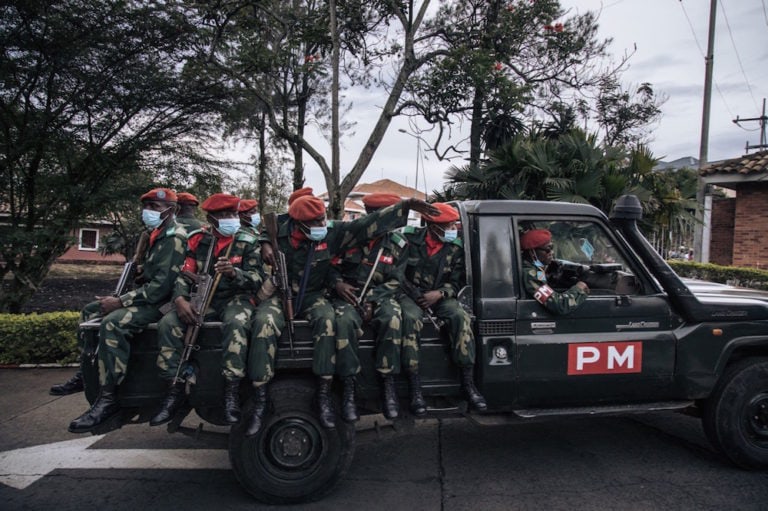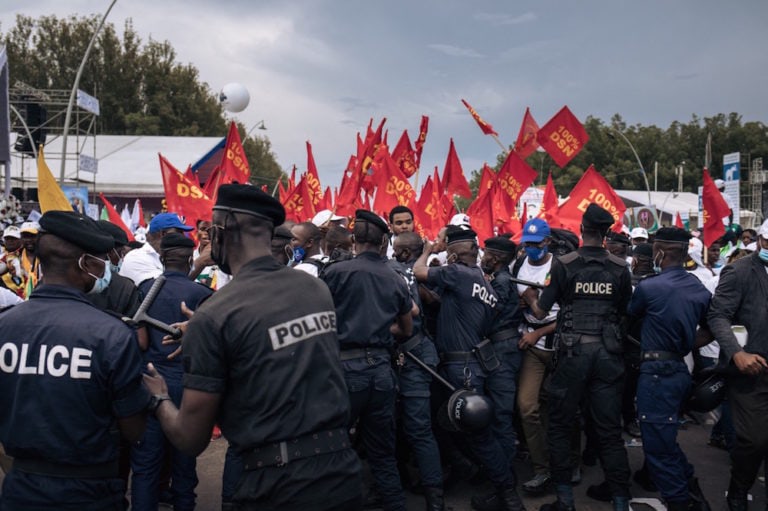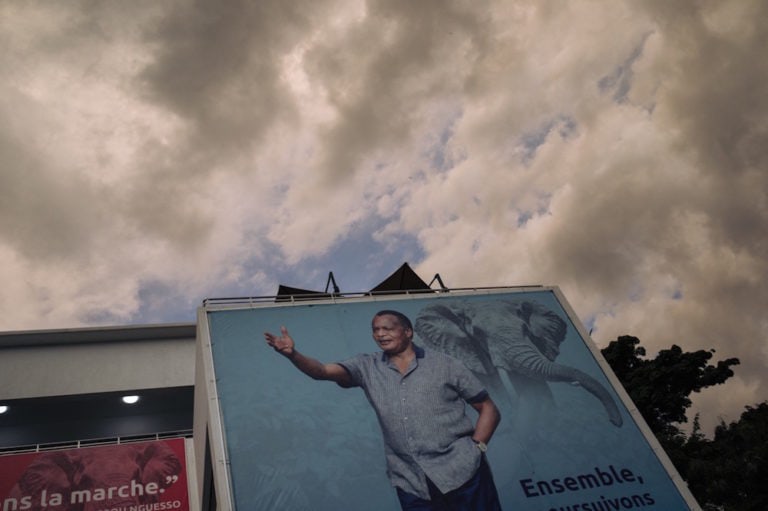The Republic of Congo's media regulator has accused the state TV oversight body of exceeding its authority and has recommended that the suspension of TV broadcaster Rocil Otouna be lifted.
This statement was originally published on rsf.org on 14 May 2020.
Like the Republic of Congo’s media regulator, Reporters Without Borders (RSF) calls on state TV broadcaster Télé Congo to reinstate Rocil Otouna, who was discreetly sidelined as news anchor after putting some difficult questions about the coronavirus crisis to the justice minister in an interview two weeks ago.
Otouna has not been seen on the air since 30 April, when he asked the minister about the lack of information about coronavirus victims, including those currently ill and those who have recovered, and about contradictions between the government’s figures and those given by the president on both the caseload and the lockdown’s economic and social consequences.
The communication ministry issued a statement denying reports in several media outlets, including privately-owned Vox TV, that Otouna was suspended as a result of the interview. But several sources confirmed to RSF that he was indeed suspended although the decision was given to him verbally, presumably in order to leave no written trace. On 3 May, World Press Freedom Day, a Télé Congo presenter asked Philippe Mvouo, the president of the Higher Council for Freedom of Communication (CSLC), the Republic of Congo’s media regulator, about Otouna’s reported suspension. Mvouo replied that the council would look into the case. After conducting an investigation and holding hearings, the CSLC confirmed that Otouna had indeed been suspended as a news anchor. The council recommended his immediate rehabilitation and accused the state TV oversight body of “interventionism,” “arbitrary measures” and “aggravated censorship.”
“The information gathered by RSF supports the media regulator’s conclusions,” said Arnaud Froger, the head of RSF’s Africa desk. “This journalist was undeniably the subject of a sanction as a result of an interview with the justice minister about the Congolese government’s handling of the coronavirus crisis.” Froger added: “The battle against the coronavirus will not be won by sidelining a journalist who voiced legitimate concerns. There are no bad questions. This journalist was not guilty of any misconduct and his suspension is completely unjustified. He must be rehabilitated and must resume his position without delay.”
In its conclusions, the CSLC also called for an end to threats and intimidation against other journalists and said there was “no evidence that Vox TV participated in a campaign to smear or defame the communication ministry or undermine the government’s effort to combat Covid-19.” The communication ministry’s statement about the Otouna affair had criticized the campaign waged by Vox TV, one of the country’s most popular TV channels, in support of Otouna and had described its coverage of the case as “fantasy.”
The Republic of Congo (also known as Congo-Brazzaville) is ranked 118th out of 180 countries in RSF’s 2020 World Press Freedom Index.



